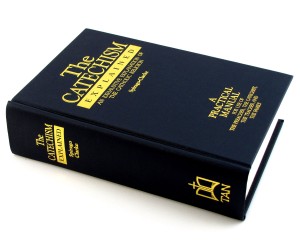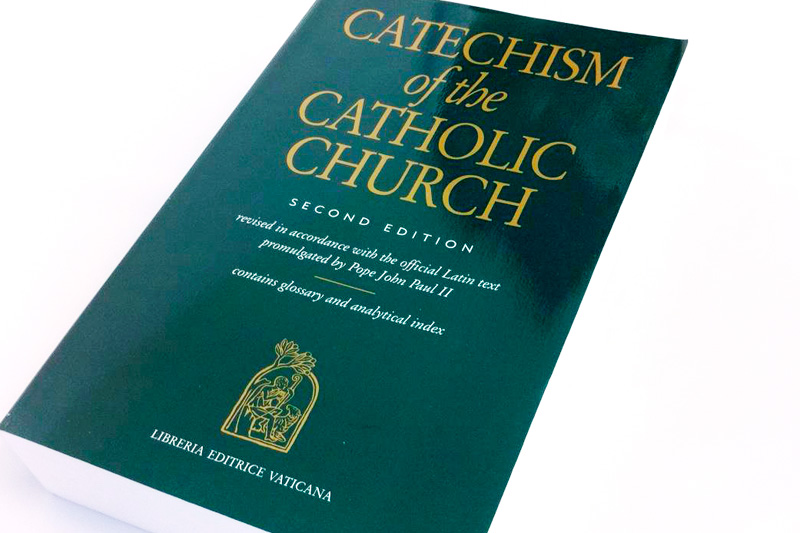Here it is, Day 17 of Flocknotes’ Read the Catechism in a Year and I have to say I’m pretty happy with the program. It’s been a great way to nibble away at the 688 pages of the international bestseller of Catholic doctrine.
One quibble though. Reading the passages, I was struck how often I need to head to the dictionary to look up a word that, quite frankly, I’ve never heard of. Like today’s word,
Anagogical
That right there is a word that St. Peter never used. I reckon he would be of the mind to toss that word overboard while fishing for men. Good thing his vocation changed, as fishing in the Sea of Galilee is now prohibited. True story.
Here’s the context in which “anagogical” was used in today’s reading,
The senses of Scripture
115 According to an ancient tradition, one can distinguish between two senses of Scripture: the literal and the spiritual, the latter being subdivided into the allegorical, moral and anagogical senses. The profound concordance of the four senses guarantees all its richness to the living reading of Scripture in the Church.
Now, the good thing is that a little further on, each of the spiritual subdivisions are discussed and clarified. But even the expanded explanation of anagogical is quite clunky,
The anagogical sense (Greek: anagoge, “leading”). We can view realities and events in terms of their eternal significance, leading us toward our true homeland: thus the Church on earth is a sign of the heavenly Jerusalem.
A leading sense? That still left me grasping for straws that a horse being led to water would need. Alas, more help was on the way that possibly requires a masters degree in theology to be even remotely helpful.
118 A medieval couplet summarizes the significance of the four senses:
The Letter speaks of deeds; Allegory to faith;
The Moral how to act; Anagogy our destiny.
Get it? No? Me neither, but I’ll keep trying because it must have something to do with heaven, right? Don’t even get me started on the assumption that you already know what a couplet is. Meter, St. Peter, whatever.
Pulling down the handy Merriam-Webster on-line dictionary, here is what I found.
Definition of ANAGOGE
: interpretation of a word, passage, or text (as of Scripture or poetry) that finds beyond the literal, allegorical, and moral senses a fourth and ultimate spiritual or mystical sense.
It ain’t (now that is a word I understand) perfect, but now that sentence makes a whole lot more sense to Joe. I would have went with,
the latter being subdivided into the allegorical, moral and anagogical (pertaining to our ultimate destiny) senses.
Of course, doing this a bunch of times would probably add another 25 pages to the Catechism, if not 100. After all, it only took Mark Shea over 2,000 words to explain anagogical once.

Idea! Maybe after this year, when we finish reading the Catechism, we can all CLEP Analyzing and Interpreting Literature and get college credit! Or after reading this book too, you might even be eligible for a teaching certificate.
Nah… Joe Six-Pack would rather go hunting, or fishing, or change the oil in his car instead, any day of the week.
Guess what Change #58 is? Concordance, as it was used in the second sentence of paragraph 115. And there I was, thinking a concordance was a big ‘ol book of cross-references. Surely “harmony” makes that sentence sing a whole lot better, if not make more “sense.”
Happy reading!












